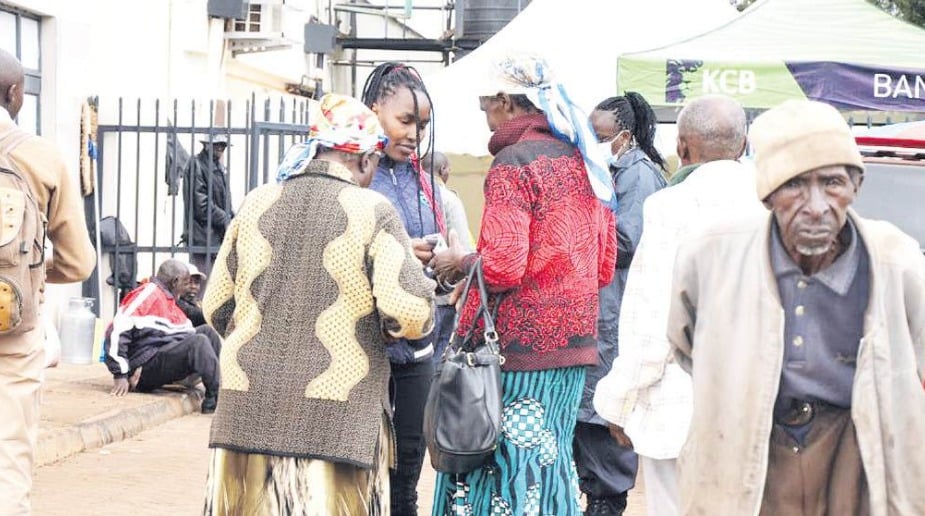

Thousands of retirees and millions of dependents are frustrated in pursuing pension benefits due to delays linked to inefficiencies in the Civil Servants Pension Scheme.
These issues include delayed disbursements, missing data, and a lack of transparency.
However, many people do not fully understand how pensions work. Here is a comprehensive guide to pensions and how to navigate the system.
A pension is a retirement plan that guarantees a retiree a fixed monthly income for life.
It applies to officers who have served in a pensionable office, completed the qualifying service, and retired under conditions that entitle them to pension benefits.
The pension amount is calculated based on years of service and the retiree’s last basic salary.
To qualify for a pension, one must have served for at least 10 years and reached the age of 50 years.
The mandatory retirement age in public service is 60 years. However, for individuals living with disabilities and registered with the National Council for People Living with Disabilities (NCPLWD), the mandatory retirement age is 65 years.
A pensioner is allowed to commute (convert to a lump sum) one-quarter of their unreduced pension. They receive this commuted lump sum first, followed by a reduced monthly pension for the remainder of their life.
Service gratuity is payable to officers who retire before completing 10 years of qualifying service.
Additionally, subordinate officers in the police force, prisons, administration police, and forest guards who retire after serving between 12 and 20 years are entitled to service gratuity.
How is Death Gratuity computed?
Death gratuity is paid to the legal personal representative of a deceased officer.
It is assessed based on the officer’s pension entitlement, with the payable amount being the commuted pension gratuity or two years' basic salary—whichever is higher.
For parliamentarians, death gratuity is calculated as five times their annual basic salary.
If a deceased officer had more than 10 years of service, their dependents receive a pension equivalent to the officer’s pension at the time of death, paid for five years.
If a male officer died while in service or after retirement and was a contributor to the Widows and Children Pension Scheme (WCPS), his dependents receive an additional payment under WCPS.
The widow receives this pension for life, provided she does not remarry.
The children’s portion is payable until the youngest child reaches 24 years.
Grounds for retirement benefits entitlement
An individual is entitled to retirement benefits under various circumstances. They include upon attaining the age of 50 years, upon reaching the mandatory retirement age of 60 years (65 for persons with disabilities) and retirement on medical grounds.
Other grounds include termination of service in the public interest, reorganisation or abolition of office, death in service, female officers resigning upon marriage and subordinate officers in the police, prisons, and forest guards retiring after 12 to 20 years of service.
The Pensions Act (Cap 189) governs the payment of pensions, gratuities, and allowances for public service officers in Kenya.
Eligible retirees and their dependents may receive one or more of benefits which include Commuted pension gratuity (lump sum) plus monthly pension, Service gratuity, Marriage gratuity, Compassionate gratuity and death gratuity.
They may also receive an annual allowance, injury pension, dependents’ pension, widows and children’s pension and killed on duty pension.
Required documents for pension claims
To process a pension claim, various documents are required.
They include the GP 178, GP 179, GP 213, GP 19 forms, pension commutation forms, Bank account form with a copy of bank/ATM card, authority letter for retirement and letters of probationary appointment, first appointment, confirmation, promotion, and re-designation
A payslip/voucher for the last salary paid, deletion sheet from IPPD, confirmation of government liability upon retirement, copy of ID card/death certificate and nominee form will also be required.
What is the minimum pension?
As of July 1, 2005, the minimum pension is Sh2,000.00 per month.
The current policy, effective from July 1, 2005, provides for a biennial (every two years) pension increase, capped at three per cent, as stipulated in the Pensions Increase Act (Cap 190).
The Pensions department administers defined benefit schemes.
However, the Public Service Superannuation Scheme (PSSS) for civil servants, teachers, police, and prison officers, which started on January 1, 2021, is a contributory scheme managed by a Board of Trustees.
Pension benefits are taxable. Pension lump sums above Sh600,000 are taxed. Death gratuity is taxed for amounts above Sh4 million, while monthly pensions are taxed for amounts exceeding Sh25,000.
Pension can only be deducted to recover government liabilities or to comply with a court-ordered child maintenance ruling.
Who is eligible for dependents’ pension?
Dependents’ pension is payable only to the widow(s) and children of a deceased pensioner. In polygamous families, it is shared equally among the widows. Dependents’ pension is paid for five years from the pensioner's date of death.
Widows receive a lifetime pension unless they remarry.
Children receive payments until the youngest child reaches 24 years, provided they are in continuous education.
A contributor may claim a refund of contributions plus interest if they resigned or were dismissed before retirement, never married or had children before retirement or were divorced or widowed, with children above the age of eligibility











